"How I Went from" is an ongoing blog series that highlights our employees' different journeys to InterWorks. The results are pretty diverse, but each story is special in its own right.
Most of my earliest memories involve music: singing along as my mom practiced hymns for our church on the piano, putting a pillow over my head in a feeble attempt to drown out the sound of my dad’s rock band in the garage and smiling and laughing as my grandfather performed cowboy songs for my classes during grade school.
Start ’em Young
Music was a staple in my household, and whether it was making a drum set out of pots and pans or plunking out songs on the piano, I showed an interest in and aptitude for music from a very young age. Like, really young:
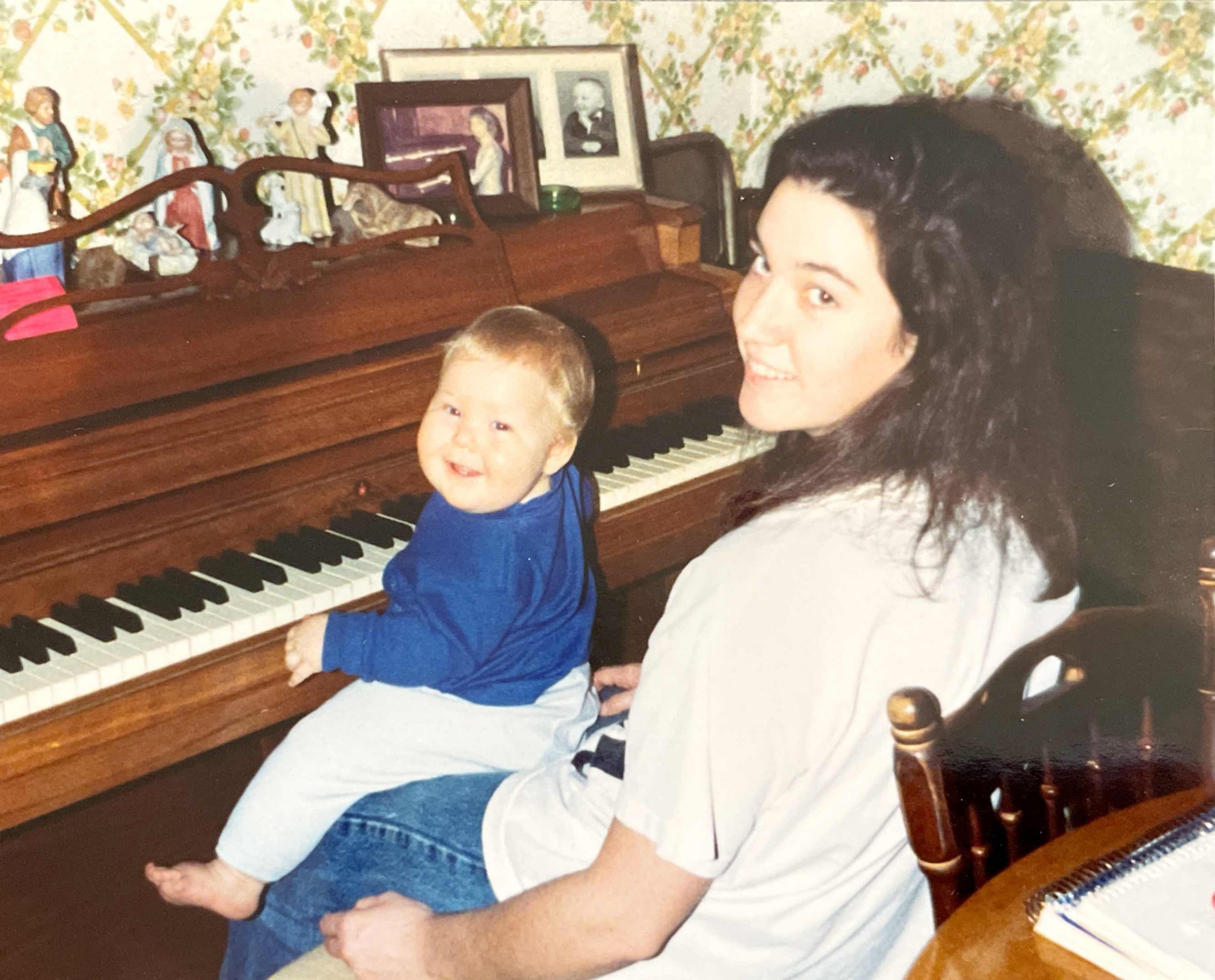
Above: A family friend and I practice piano.
It was no surprise to anyone when I came home from elementary school enthusiastically waving around a flier for a local children’s choir. From those early days in choir on, music became a core part of my identity. I was the only fourth grader at Sangre Ridge Elementary who got psyched to learn the recorder, I joined orchestra and played double bass throughout most of my education, and, after a year of trying something else in college (pre-law), I decided to major in vocal music education at Oklahoma State University:
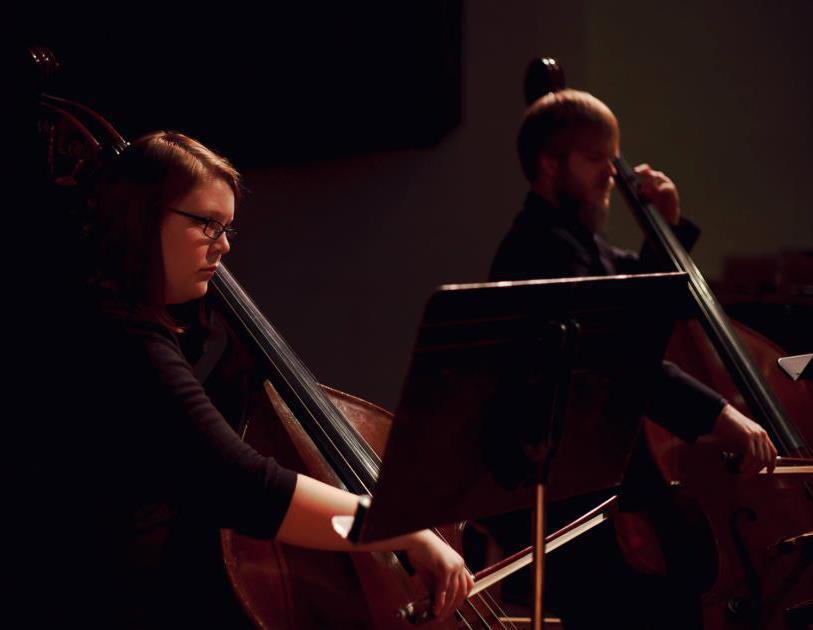
Above: Playing double bass with the OSU Symphony Orchestra in 2012
In undergrad, I excelled in music theory classes. Music theory (or just “theory”) is one of the two primary “analytical” branches of music academia. While there’s no single definition that captures every aspect of music theory as an academic subject, my own definition is “the study and codification of norms and deviations in a body of musical works.” Music majors take between four and seven semesters of music theory courses throughout their undergraduate degree to build a foundational understanding of the common structures in Western classical music. My theory professors were outstanding in their commitment to connecting with students on an individual level, and they saw a future for me in the field long before I saw one for myself:
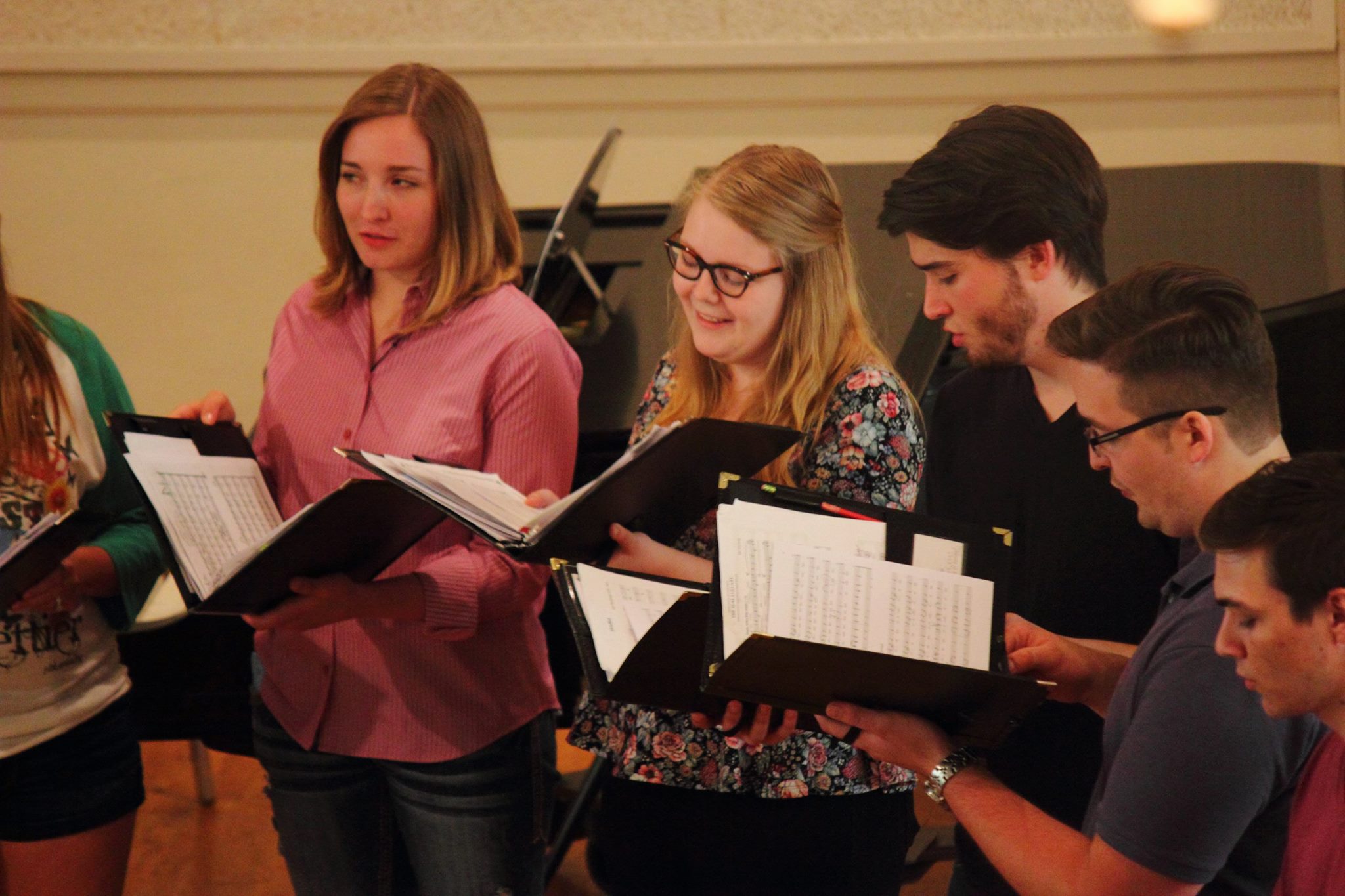
Above: Singing in an a cappella group for a community concert series in Stillwater, OK
“Wait, That’s a Real Degree?”
After graduating with my bachelor’s, I did what many new graduates do when they’re not totally sure what they want to do as a career: I went to graduate school. During my first year in the Music and Human Learning program at the University of Texas at Austin, I took an exceptional theory class with a prominent scholar that changed everything. My professor and I quickly recognized my knack for classical form, an area of theory that focuses on common thematic schemes and sections in the music of Haydn, Beethoven and Mozart. After a serendipitous campus visit from an eminent scholar of form in Mozart who happened to be searching for a graduate teaching assistant at another Texas school, I transferred universities and became the first-ever graduate teaching assistant in music theory at the University of Texas at Arlington. I planned to earn my master’s degree and apply to return to UT-Austin for my PhD.
My time at UT-Arlington was awesome. I had wonderful professors and students, and I was very proud of the work I did while I was there. Upon completing my master’s degree, though, I found myself at a crossroads. I was planning to stay at UT-Arlington as an adjunct professor of music theory, but I also had the opportunity to move back to my hometown of Stillwater, Oklahoma, to become the first box office manager at the McKnight Center for the Performing Arts. The McKnight Center is a new, 1100-seat performance hall that opened in October 2019 with a generous programming endowment that brings renowned musical acts like the New York Philharmonic to Stillwater:
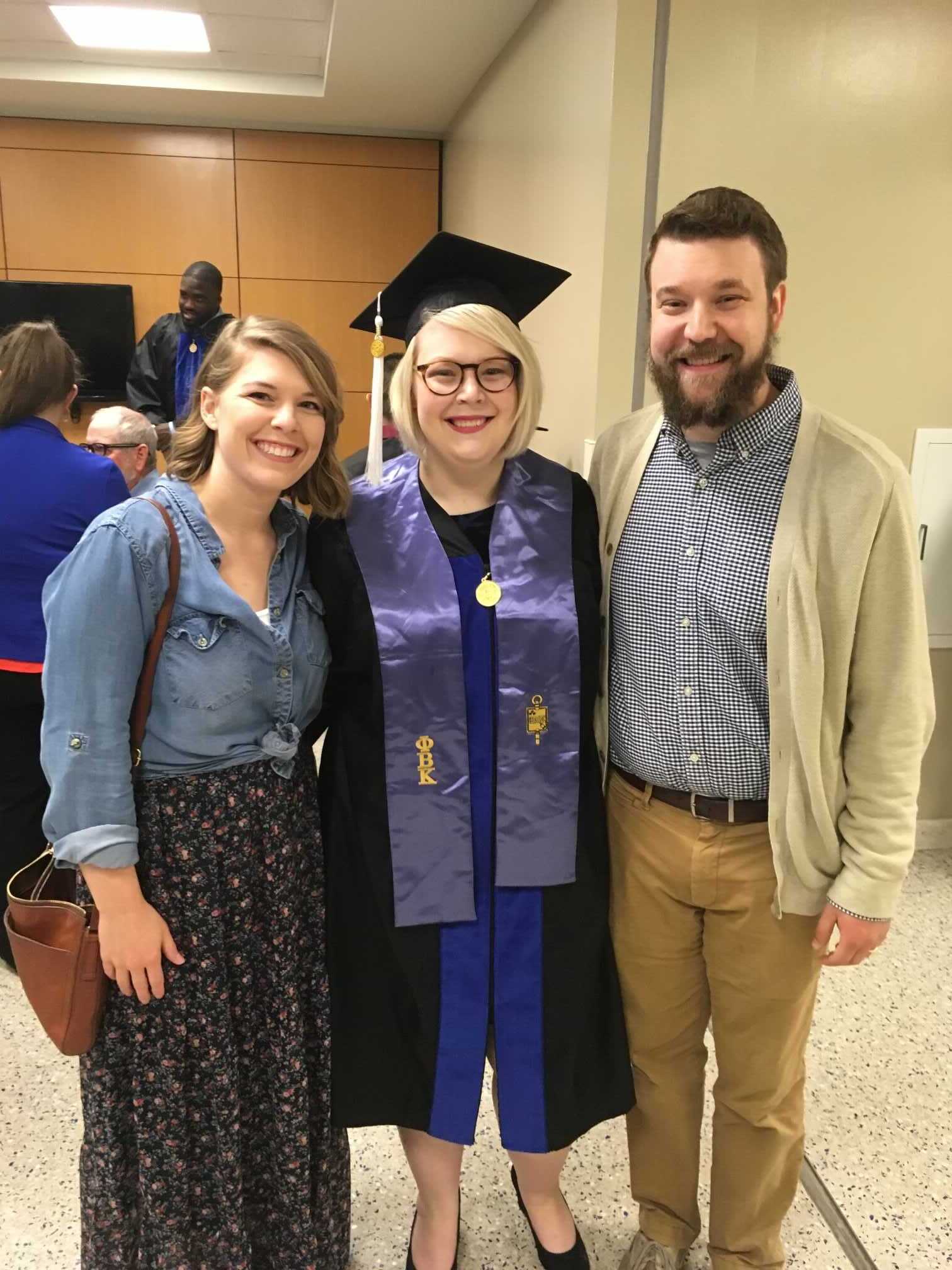
Above: Posing with my brother and sister in-law at my master’s graduation from UT-Arlington
Homeward Bound
While I loved my experience in academia, something was missing: my community. For the three years I lived in Texas while earning my master’s degree, I still felt very connected to Stillwater. In fact, during my grad school summers, I came home for two months to direct musicals at Stillwater’s local community theatre. As much as I loved my colleagues and students, becoming a music theory professor would mean moving wherever I was able to secure a tenure-track job. For many academics, that is an exciting component of their vocation. For me, my Stillwater roots ran so deep that I had no desire to grow anywhere else:
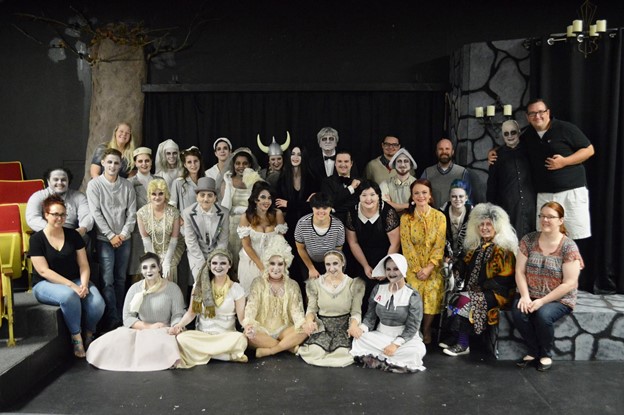
Above: The cast and crew of The Addams Family musical at Town and Gown Community Theatre in 2018
Ultimately, I decided to accept the position at the McKnight Center and become part of the groundbreaking team that brought world-class artistic opportunities to our small community. During my time as the box office manager, I built lasting friendships with my former coworkers who are deeply committed to providing exceptional artistic experiences to our community. I also developed some new passions: first, I learned that my ability to help others went beyond the context of music education; second, I doubled down on my desire to be a part of organizations that made my community better; and third, I discovered I have strong intuition for working with customers and finding solutions that improve their experience:
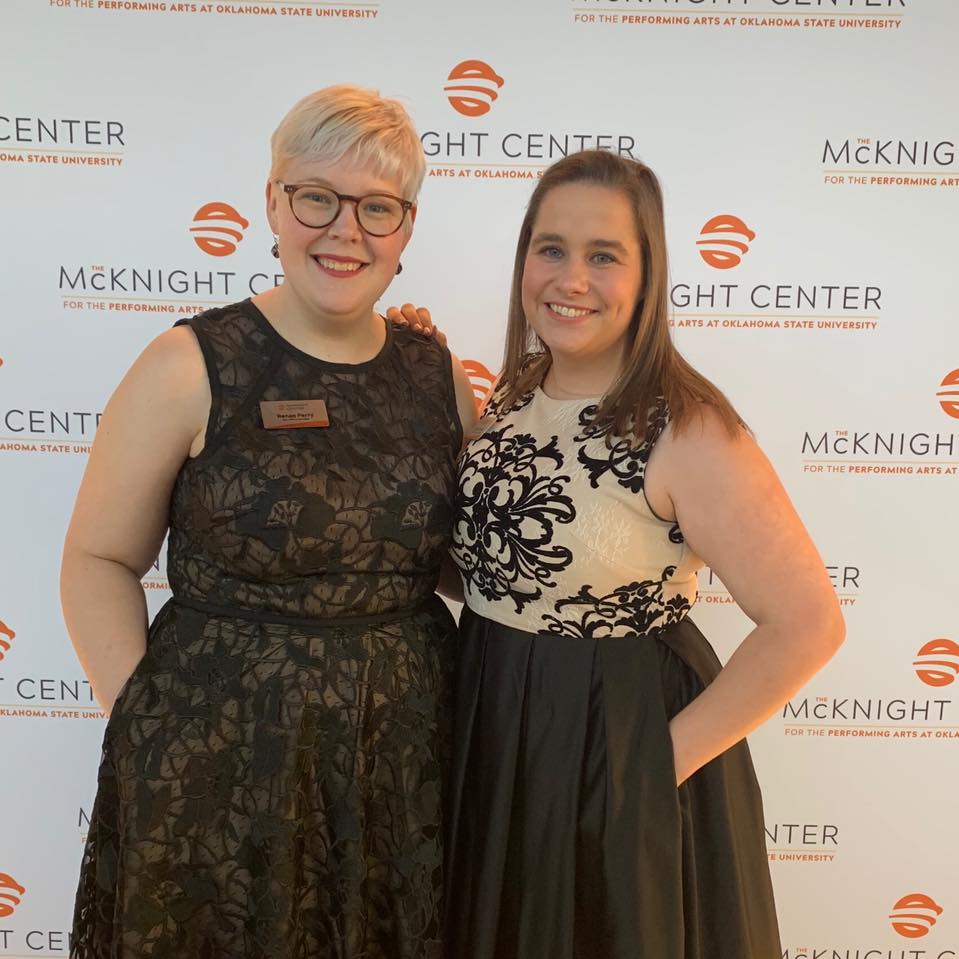
Above: My close friend and former colleague, Sara Nichols, and I at the opening night gala for the McKnight Center for the Performing Arts
Building Connections
What ultimately drew me to InterWorks was the people. InterWorkers are consistently and quietly doing great work throughout their communities—both as data and tech professionals and on their own as citizens. I scrolled through the list of employees, and the five or six people I knew were kind and intelligent. They were not just people I wanted to work with but people I wanted to be like. When I saw the description for Account Executive – Client Manager, it appealed to the analytical, problem-solving skills I honed in music theory, as well as the enthusiasm for building client relationships I developed as a box office manager.
During my final interview, everyone I spoke with was authentic and passionate. Instead of the normal anxiety and inclination toward over-analysis I often experience after interviews, I walked away from the building with a huge smile on my face—not out of overconfidence or because I had any level of certainty I would receive an offer, but because of the laughs and moments of connection I shared with the folks I met throughout the afternoon. It felt like making friends.
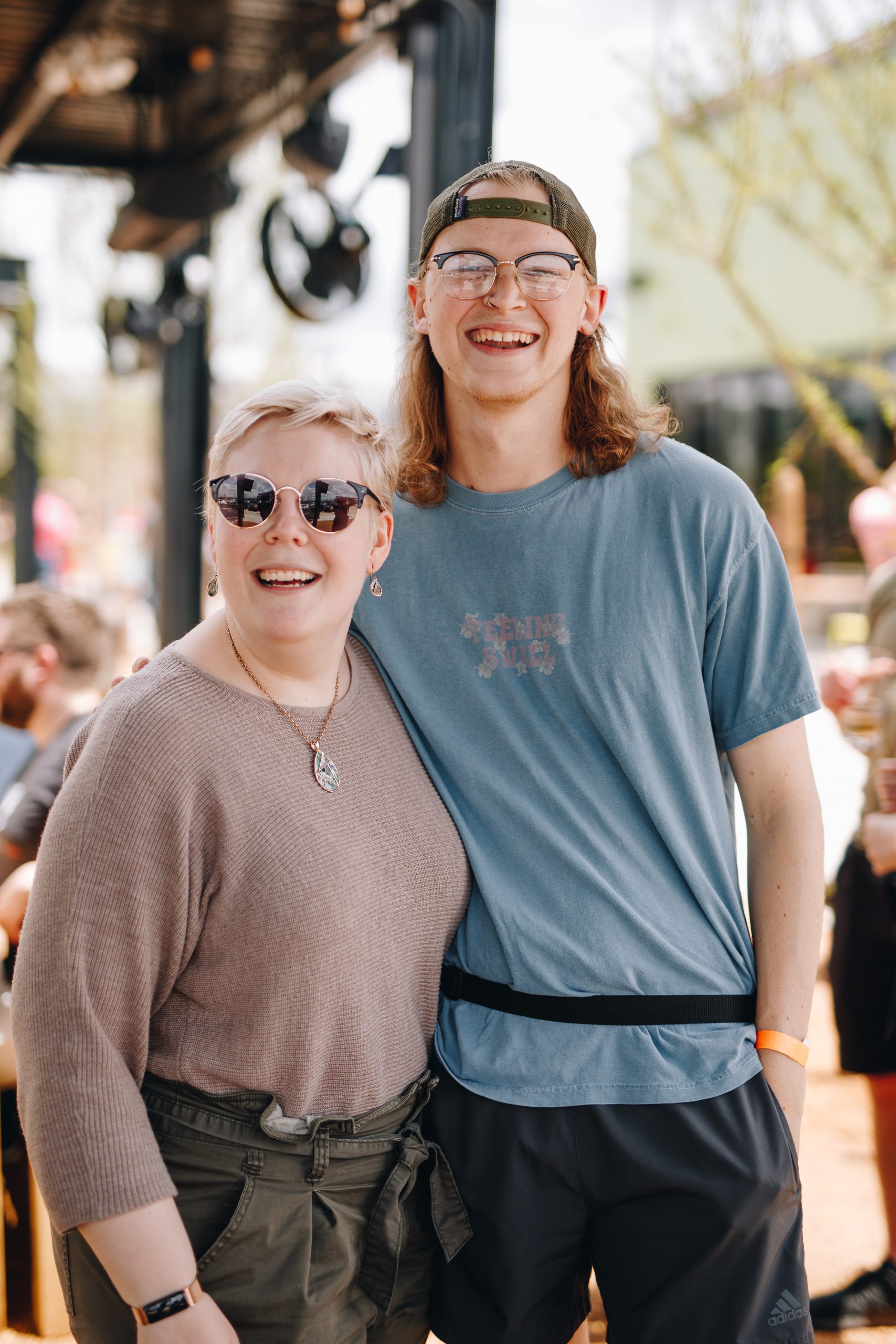
Above: Hanging out at an InterWorks event with Will Ranson who, coincidentally, I met 15 years ago through a children’s choir program I joined in elementary school
Though it’s still the beginning of my career here, I can say with confidence that I love being on the BI Sales team as a Client Manager. Every single day, I get to be a part of a company that has a positive impact on the community I love, work with colleagues who inspire me and build connections that allow clients and their organizations to reach their full potential. Two years ago, if someone told me I’d be working in sales at a tech company in 2021, I wouldn’t have believed them for a moment, but I’m really glad I’m here.
If you want to join this one-of-a-kind company with an even more unique culture, explore our open roles! We’d love to meet you.

